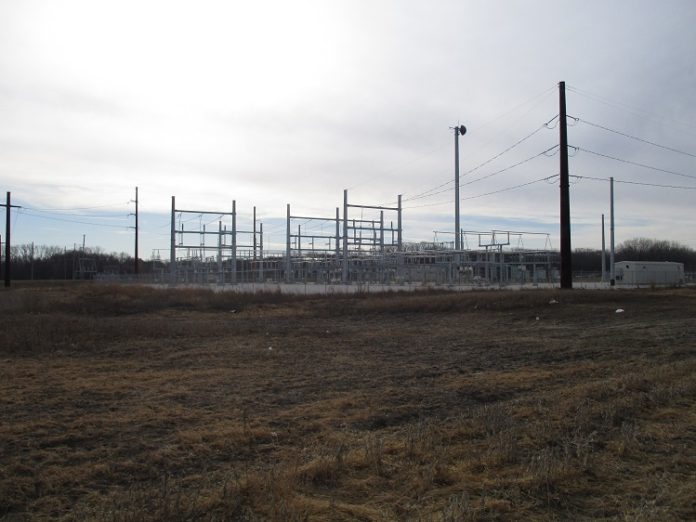To the editor:
For the past 16 years, I have gratefully served the people of Dallas and Polk counties in the Iowa House of Representatives. Over these years, I’ve had the opportunity to vote on hundreds of legislative proposals for the well-being of our state and its people.
Before I retire from my service in the legislature this year, I hope the legislature will pass and Gov. Reynolds will sign Senate File 2311, one of the most significant legislative proposals on energy this state has seen in decades.
This legislation contains important provisions to lower our utility bills, help rural areas and continue Iowa’s leadership in energy.
Prior to my service in the Iowa legislature, I spent 31 years in the Iowa utility industry, having moved here after graduation with a degree in electrical engineering. Needless to say, a lot has changed in the utility industry since we came to Iowa.
The National Academy of Engineering recently named electricity the greatest engineering achievement of the 20th century. I am proud to have been even a small part of those advancements.
Today Iowa is a national leader in energy and energy delivery, and Iowa’s utilities are continually investing in the state to help ensure we remain in that position. That is why our state is ranked first in the nation for wind energy. That is why power outages are rare and when they do occur, we can usually blame Mother Nature.
SF 2311 won’t change Iowa’s winter storms or hot summers, but it will modernize outdated laws and add common-sense policies, such as expanding natural gas service to rural areas, and by allowing rural electric cooperatives and municipal utilities more freedom from excessive regulation.
When communities have access to affordable natural gas and electricity, they are more attractive to business expansion, job creation and home locations for new families. It’s about helping rural areas thrive and giving them the energy tools to do so.
Iowa’s public utilities are subject to the rules and regulations of the Iowa Utilities Board (IUB), a bipartisan state agency, and the utilities can only change rates after a lengthy process in which their requests are thoroughly contested.
Contrary to the misinformation that has been raised around SF2311, the changes being discussed have nothing to do with the established tariffs of the utilities, and it will result in a decrease on utility bills. Yes, a decrease.
This is how that decrease can be made: In 1990 the Iowa Legislature passed a bill requiring utility companies to charge at least a 2 percent energy-efficiency fee to all customers. The revenue from those fees was to be used to finance rebates of an undefined nature to consumers who make energy efficient purchases.
This was simply an adder on our bills that is completely outside the contested tariffs charged by the regulated utilities.
When the energy-efficiency charge started showing up on the bills after 1990, the public reaction was very vocal in opposition. In a following legislative session, another bill was passed that continued the charge but mandated that utility companies not disclose it to consumers.
In 1996 the legislature again intervened by removing the 2 percent minimum but left the fee in place. Currently, the original 2 percent adder is now in excess of 5 percent to 9 percent of the bill, depending on the customer being billed, with commercial and industrial customers paying the higher fees.
In 1990 more than $4 million was collected through these fees. In 2016 more than $241 million was collected, and the total collected since its inception is more than $2.5 billion. This is in addition to what Iowans paid in their usual bills for energy consumption.
When that growth is examined, it is apparent that since 2009 the annual growth of these fees was in excess of 32 percent each year. Needless to say, this fee on consumers, imposed by the legislature in the 1990s, has gotten totally out of control. Senate File 2311 addresses this issue head on.
This legislation not only right-sizes the energy efficiency fee to 2 percent, which is still more than our neighboring states, but it also requires utilities to disclose this charge on customer bills and, in addition, affords the consumers a choice whether they desire to participate.
I applaud my colleague in the Iowa Senate, Sen. Jake Chapman, for bringing this much needed legislation forward. In the coming weeks, I hope my colleagues in the House will continue to move Senate File 2311 forward to help grow our rural economy and ensure Iowans across the state continue to enjoy reliable, affordable energy.
Rep. Ralph Watts
Iowa House District 19


















Nice to see a politician talk about an issue without throwing mud at an opposing party. We need more talk about issues and policy like this at all levels of government. This “fee” is simply a tax. Who is in charge of this money, and how is it managed? It’s disturbing this has been going on for 28 years, and most people probably don’t even know about it. Thanks for bringing it to our attention, Ralph.